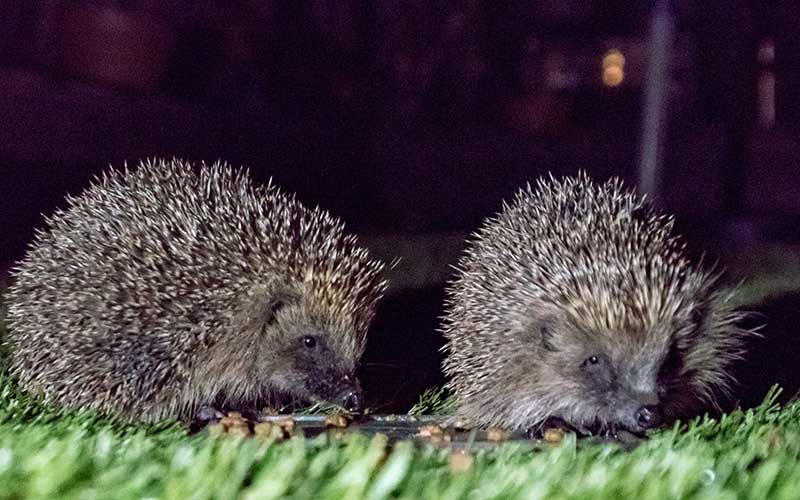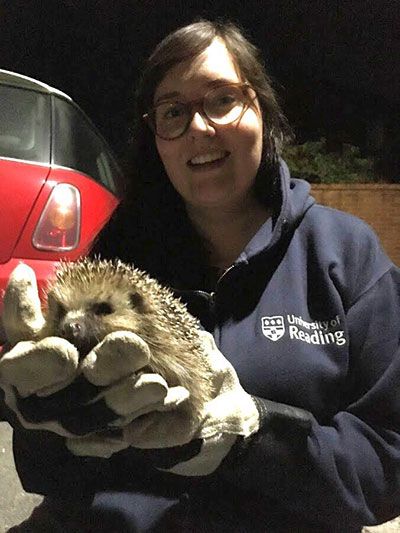Evidence-based conservation for urban hedgehogs

Understanding the ecology and behaviour of urban hedgehogs is essential to devising successful conservation strategies.
Urban hedgehog populations are of increasing importance in the UK as the national population declines.
Funding for this project has now finished
The problem
Nationally, the UK hedgehog population has declined dramatically in the last 50 years, but one habitat where the species is potentially doing much better is in our towns and cities. As one of our favourite mammal species, many urban residents are already passionately interested in helping to improve the fortunes of “their” hedgehogs. But developing successful strategies for the conservation of urban hedgehogs requires a detailed understanding of their ecology, behaviour and demography to identify how they can be helped but also to what extent conservation interventions such as the Hedgehog Street campaign (launched by PTES and BHPS) affect individual animals and, ultimately, populations.
The solution
Abigail Gazzard, based at the University of Reading, will focus on quantifying key aspects of urban hedgehogs’ ecology and demography across different urban landscapes within the town. Particular emphasis will be placed on identifying: the survival rates of different classes of individuals such as juveniles, and during different key time periods (such as hibernation). Abigail will also determine how hedgehogs move through the urban landscape and which gardens they prefer. Looking at whether and how increasing connectivity between gardens affects the movement of hedgehogs will be critical to assessing what conservation measures we need to promote across the landscape. This information will be used to provide advice for individual householders and conservation organisations so that they can ensure a happier future for hedgehogs in our urban landscape.

Thank you to all our donors who helped us fund this work. You can help us support more projects like this with a donation today:
